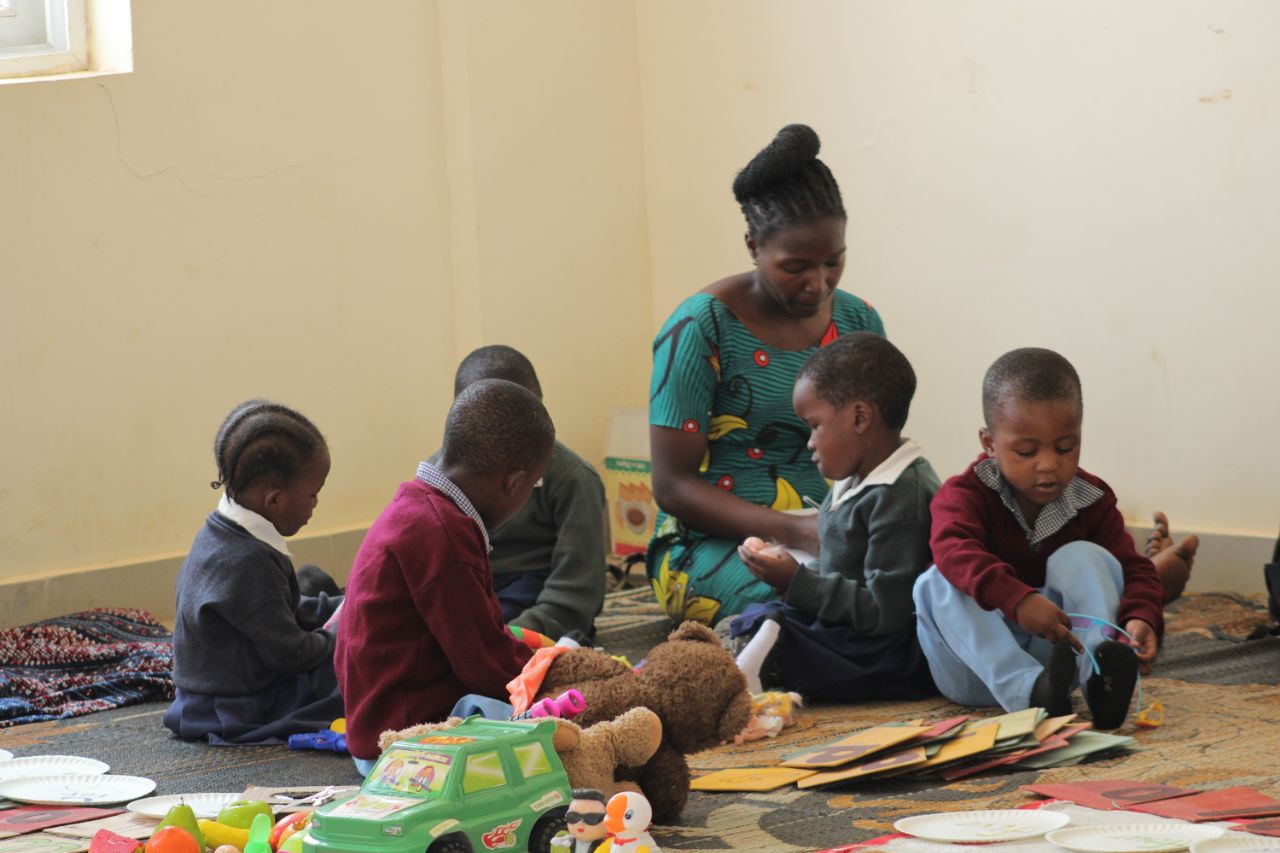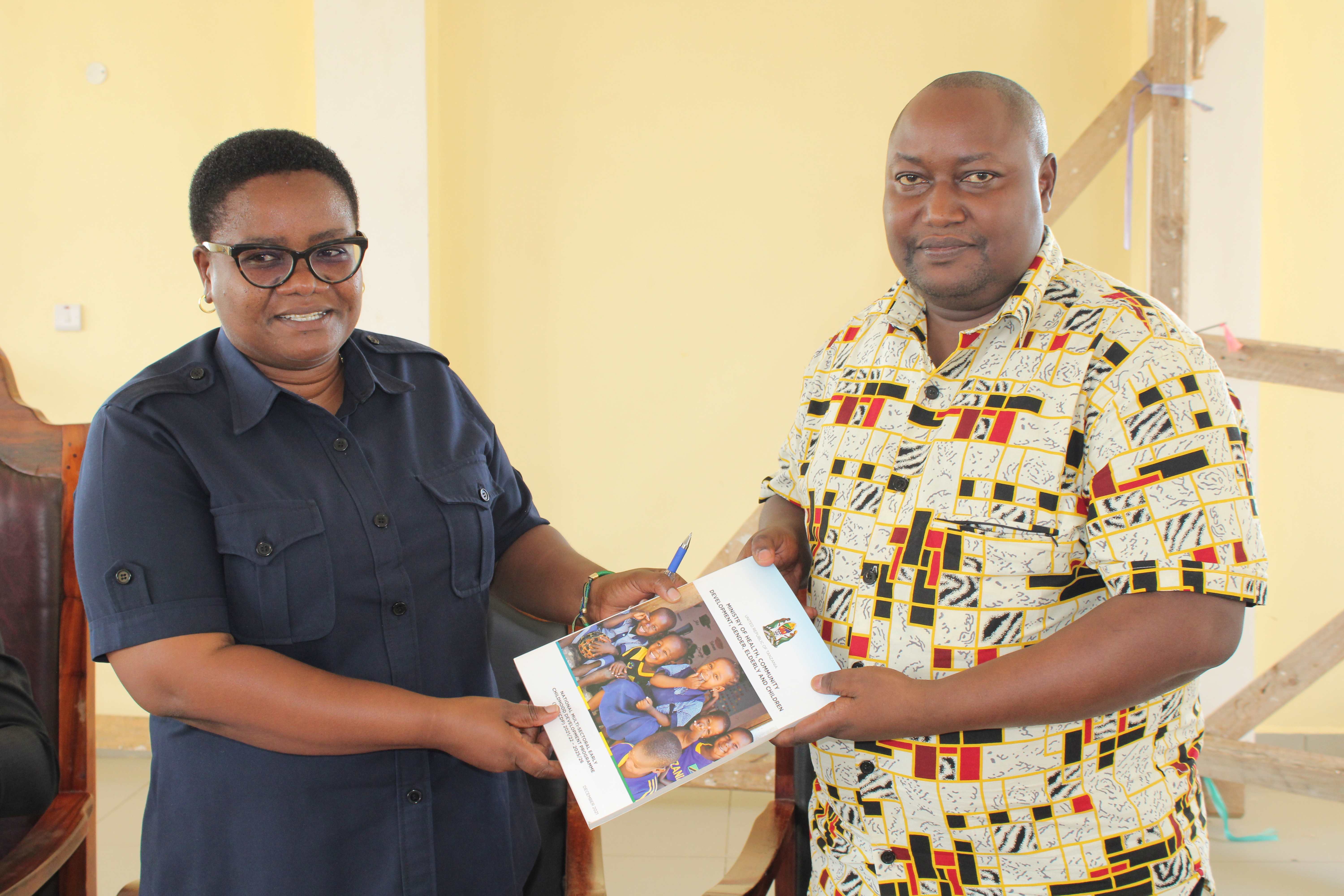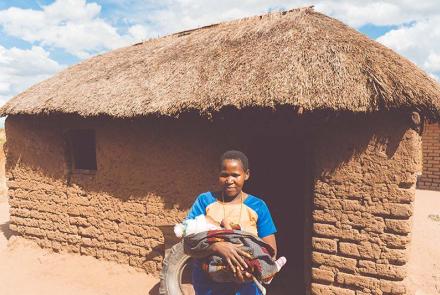
HIMSO's Early Childhood Development Program
Introduction
In 2022, HIMSO recognized a need to integrate Early Childhood Development (ECD) into the existing Primary Health Care (PHC) program, which had been running for over a decade. This decision came after observing a persistent lack of improvement in health outcomes, particularly for pregnant women and children under five, despite implementing a social protection program offering free or subsidized transport to access quality healthcare during emergencies for these vulnerable populations, results remained stagnant.
Further analysis revealed a concerning trend: referrals for children and women had significantly increased (from 67% to 84% of total referrals). However, there was a troubling rise in "near misses" and deaths compared to other demographics. This prompted HIMSO to conduct a deeper investigation into the quality of care, health practices, and services provided to pregnant women and children within their communities.
The investigation report revealed a critical challenge: roughly 59% of households struggled to provide adequate nutrition, quality healthcare, and responsive caregiving to their children, even during pregnancy. This lack of basic resources stemmed from a combination of poverty, inadequate infrastructure, and ingrained cultural beliefs that hindered optimal Early Childhood Development (ECD) outcomes.
HIMSO addressed these concerns by integrating ECD principles into existing healthcare interventions. Through targeted capacity building and social behavior change programs, that aimed to empower communities. The ECD intervention specifically focused on three key components of the nurturing care framework: responsive caregiving, adequate nutrition, and improved health practices.
Our ECD Program
HIMSO champions Early Childhood Development (ECD) through its primary healthcare program in 10 underserved councils across Songwe and Mbeya regions. These communities face a significant knowledge gap regarding ECD principles, hindering optimal care and support for young children's holistic development.
HIMSO's ECD program tackles the critical issue of child development in Songwe, where only 24.8% of children currently meet developmental milestones (according to ECDI 2030). By equipping communities with essential knowledge and engaging caregivers, parents, educators, and local leaders, the program fosters supportive environments that empower young children to thrive and reach their full potential.
HIMSO adopted a multi-pronged approach to promote collective responsibility for child development in Songwe and Mbeya. This approach involved capacity building and awareness campaigns, empowering 856 Community Health Workers (CHWs) to educate their communities on nutrition, responsive caregiving, and health principles – all essential for fostering healthy child development.
The collective responsibility ECD model
This intervention has achieved significant outreach. Over 500 local leaders are now actively promoting ECD principles within their communities. Additionally, more than 120 health facilities are engaged in raising awareness about child nutrition and health, while also providing comprehensive ECD services. This collaborative effort has successfully sensitized 150 villages, resulting in increased knowledge on ECD among 7,500 community members, with a focus on parents and caregivers (65%).
The intervention significantly strengthened HIMSO's ability to engage with communities and manage community-based ECD programs. HIMSO gained valuable experience in three key areas:
MTOTO KWANZA PROJECT
Since June 2023, HIMSO has actively participated in the Tanzania Early Childhood Development Network (TECDEN) as a regular member. This membership has led to a successful partnership focused on promoting Early Childhood Development (ECD) in Songwe.
The partnership aims to achieve holistic development for all children in the region, ensuring they reach their full potential. This is accomplished by influencing changes in policies, programs, and practices related to ECD. Through this partnership, we have the Mtoto Kwanza Project, an intervention that directly addresses this goal. The project works to:
- Expand public access to ECD resources and engagement in the region.
- Stimulate demand and accountability for the implementation of the National Multi-sectoral ECD Program (NM-ECDP).
- Achieve this through several key activities:
- Supporting local implementing partners by convening ECD coordination meetings.
- Participating in regional NM-ECDP review meetings.
- Raising community awareness and public demand for ECD services.
- Advocating for increased resource allocation to invest in ECD services in Songwe.
We plan to keep the Early Childhood Development (ECD) program going in Mbeya and Songwe regions. To do this, we focus on strengthening community-led structures to create a sustainable network of ECD champions who can mentor, educate, and lead the way in promoting child development including establishment of community-managed ECD centers as a learning point for both parents/caregivers and children.
ECD Achievements in 2024
Songwe Region Embraces National Multi-Sectoral ECD Program
A collaborative effort has successfully launched the National Multi-sectoral Early Childhood Development Program (NM-ECDP) across all five councils/districts in Songwe Region. This significant milestone marks the beginning of program implementation in each council.
The dissemination events were organized by HIMSO in partnership with the Songwe regional team (RSWO, RCDO, and RCO), ECD champion journalists, and district teams, particularly those from the community development and social welfare departments. This collaborative approach ensured broad participation, with senior district officials (District Commissioners, District Administrative Secretaries, and/or District Executive Directors), department heads, ward/village government leaders, and community representatives (councilors, religious leaders, and traditional leaders) all attending the launching.
The successful launch signifies a commitment from all councils to cascade ECD knowledge down to the household level. This grassroots approach empowers families with the information they need to improve childcare practices in alignment with the NM-ECDP guidelines. HIMSO will continue to play a vital role by raising awareness (sensitizing), coordinating efforts, and supporting both government and non-governmental actors. Ultimately, the goal is to foster a nurturing environment that enables children in Songwe to thrive and reach their full potential.

Empowering Change: Insights from the Aga Khan University's ECD and Gender Inclusion Training
Our participation in the Aga Khan University's ECD and Gender Inclusion training significantly enhanced our understanding of how gender perspectives, at both the child and community level, can impact early childhood development.
The training equipped us with valuable knowledge and best practices for designing and implementing gender-sensitive ECD programs. This newfound expertise empowers us to play a more active role in reducing gender inequalities within our communities.
HIMSO Enhances ECD Expertise at the East Africa Regional Conference 2024
HIMSO actively participated in the recent East Africa Region ECD Conference 2024. This valuable event provided a platform for knowledge exchange with a diverse range of stakeholders in the Early Childhood Development (ECD) field.
We were honored to present our experiences in empowering communities and caregivers for sustainable ECD interventions during a roundtable discussion. This opportunity not only allowed us to share our expertise but also fostered valuable dialogue with colleagues.
The conference offered a wealth of learning opportunities. We gained insights from research findings, best practices presentations, and inspiring stories shared by attendees. Building on the connections and networking opportunities fostered at the conference, HIMSO is committed to leveraging these learnings to further improve our ECD programs and maximize our impact on children in underserved communities.

